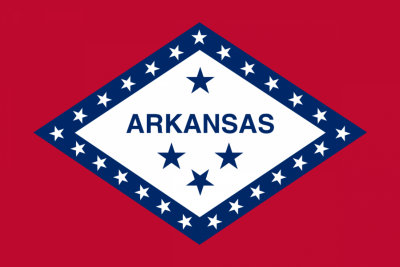Arkansas

On May 23, 2016, the Governor of Arkansas signed what is known as the Frank Broyles Publicity Rights Protection Act of 2016. The bill states that it supplants common law in the state. My thoughts on the bill, as passed, can be read at http://www.rightofpublicityroadmap.com/news-commentary/arkansas-resurrects-right-publicity-bill
Statute
YES
The Frank Broyles Publicity Rights Protection Act of 2016
Arkansas also has a criminal statute that limits “voyeurism offenses,” and specifically the recording of individuals in private areas without consent. Ark. Code Section 5-16-101.
Common Law - Right of Publicity
NO
Prior to the 2016 passage of a right of publicity statute, no state or federal court had recognized a distinct “right of publicity” or distinguished such a right from misappropriation. The state statute now supplants any common law claims for the “unauthorized commercial use of the name, voice signature, photograph, or likeness of an individual.”
Common Law - Right of Privacy-Appropriation Tort
LIKELY YES
The state has long recognized a right of privacy and the tort of misappropriation, tracking the Restatement (Second) of Torts. The new publicity statute is silent on whether claims for noncommercial appropriation remain at common law.
Olan Mills Inc. of Texas v. Dodd, 353 S.W.2d 22 (Sup. Ct. 1962)
Stanley v. General Media Communications, Inc., 149 F.Supp.2d 701 (W.D. Ark. 2001)
Post-Mortem Right
YES
The right of publicity statute now provides protection for fifty (50) years after death for those who died as residents or domiciled in the state.
Limits on Right
Does the law require the plaintiff or identity-holder to be a celebrity or have a commercially valuable identity?
NO.
Does the law protect persona?
UNCLEAR.
No court has addressed the issue. The language used in the cases and Model Jury Instructions thus far has been limited to “name and likeness.” The new right of publicity law protects “names, voices, signatures, photographs, and likensses” and supplants any common law which may indicate that broad persona protection is not available.
Is Liability Limited to Uses on Commercial Advertising or Commercial Speech?
UNCLEAR.
At least one federal court has held that a defendant’s use of a plaintiff’s name or likeness must be commercial speech or in the advertising or promotion of noncommercial speech. The misappropriation tort in the state, however, is based on the Restatement (Second) of Torts which allows liability when the use is for the defendant’s “benefit” whether “commercial or otherwise.” This broader interpretation has been adopted in the state’s Model Jury Instructions. The new act has not yet been interpreted, but limits uses to those that are “commercial.” It is not clear how that language will be interpreted or whether the privacy-based appropriation tort will continue to apply to noncommercial uses.
Stanley v. General Media Communications, Inc., 149 F.Supp.2d 701 (W.D. Ark. 2001)
LasikPlus Murphy, M.D., P.A. v. LCA-Vision, Inc., 76 F.Supp.2d 866 (E.D. Ark. 2011)
Arkansas Model Jury Instruction 421
Statutory Defenses
The statute provides a number of defenses primarily for uses in expressive works, such as plays, books, magazines, muscial works, works of art, audio-visual works, and both fictional and nonfictional entertainment. Institutions of higher education are also exempted.
First Amendment Analysis
Although no court has analyzed the First Amendment in the context of the misappropriation tort under Arkansas law, Arkansas sits in the Eighth Circuit Court of Appeals. In C.B.C. Distribution & Marketing, Inc. v. Major League Baseball Advanced Media, L.P., 503 F.3d 818 (8th Cir. 2007), the Eight Circuit applied a balancing test and held that the use of players’ names and statistics by a fantasy sports league was protected by the First Amendment against a claim under Missouri’s right of publicity.
Other Commentary
The right of publicity statute explicitly states that the right is not to be treated as “intellectual property” for purposes of the Communications Decency Act Section 230. Nevertheless, it designates the right as “freely transferable” and descendible.
